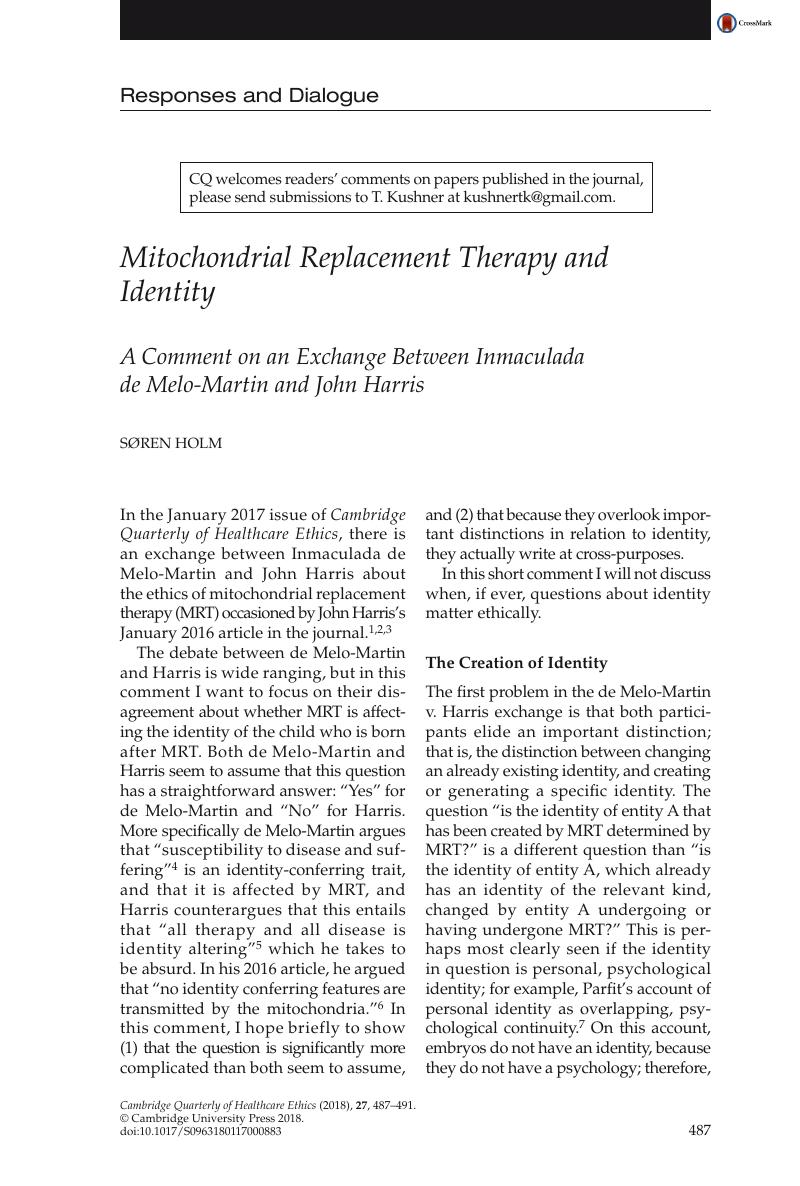Article contents
Mitochondrial Replacement Therapy and Identity: A Comment on an Exchange Between Inmaculada de Melo-Martin and John Harris
Published online by Cambridge University Press: 30 May 2018
Abstract

- Type
- Departments and Columns
- Information
- Copyright
- Copyright © Cambridge University Press 2018
References
Notes
1. de Melo-Martín, I. When the milk of human kindness becomes a luxury (and untested) good. Cambridge Quarterly of Healthcare Ethics. 2017;26(1):159–65.Google Scholar
2. Harris, J. How to welcome new technologies: some comments on the article by Inmaculada de Melo-Martin. Cambridge Quarterly of Healthcare Ethics 2017;26(1):166–72.CrossRefGoogle Scholar
3. Harris, J. Germline modification and the burden of human existence. Cambridge Quarterly of Healthcare Ethics 2016;25(1):6–18.Google Scholar
4. See note 1, de Melo-Martín 2017, at 160.
5. See note 2, Harris 2017, at 166–7.
6. See note 3, Harris 2016, at 11.
7. Parfit, D. Reasons and Persons. Oxford: Oxford University Press; 1986.Google Scholar
8. Tuppen, HA, Blakely, EL, Turnbull, DM, Taylor, RW. Mitochondrial DNA mutations and human disease. Biochimica et Biophysica Acta 2010;1797(2):113–28, at 117.CrossRefGoogle ScholarPubMed
9. I owe this argument to Iain Brassington.
10. See note 8, Tuppen et al. 2010, at 117.
11. Schapira AH. Mitochondrial disease. The Lancet 2006;368(9529):70–82.
12. See note 3, Harris 2016.
13. Nuffield Council on Bioethics. Novel Techniques for the Prevention of Mitochondrial DNA Disorders: An Ethical Review. London: Nuffield Council on Bioethics; 2012, at 53.
14. See note 2, Harris 2017.
15. See note 3, Harris 2016.
- 1
- Cited by


